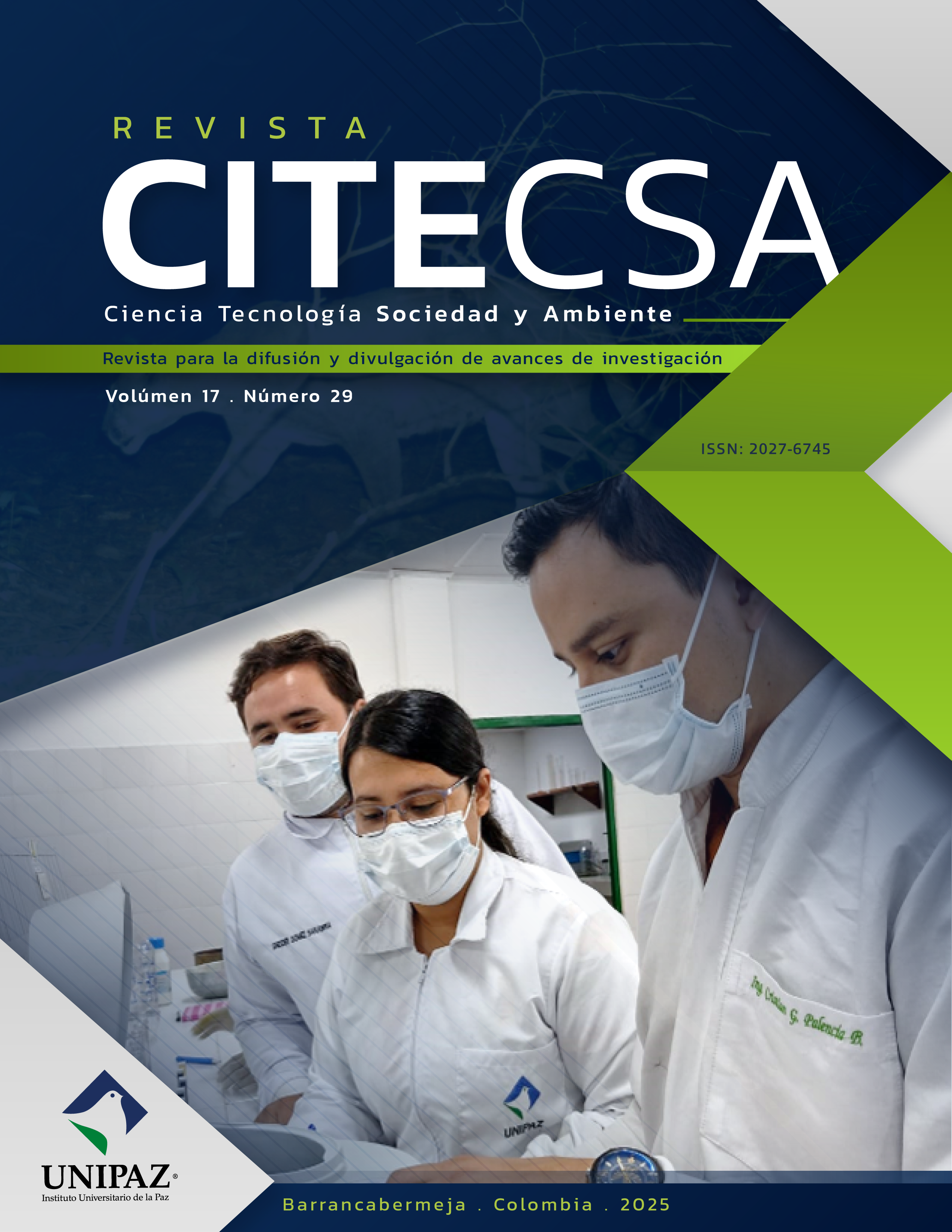Separation of plant pigments by columna chromatography
Keywords:
Plant pigments, column chromatography, applicationsAbstract
This research is focused on the analysis of plant pigments extracted from spinach and chard using column chromatography, an efficient tool to separate and characterize compounds. Plant pigments, such as chlorophyll and carotenoids, are essential both for their biological function and for their diverse applications in industry. Extracts of spinach and chard were employed, using solvents such as petroleum ether and acetone to facilitate the extraction of these compounds. The results obtained showed that column chromatography allowed efficient separation of pigments, identifying mainly chlorophyll A and B, as well as carotenoids. It was observed that spinach, due to its high concentration of chlorophyll, produced a greater amount of this pigment, unlike chard, which in addition to chlorophyll, presented a greater diversity of pigments, including carotenoids, flavonoids and xanthophylls. This suggests that chard may have a broader potential for bioactive compounds. These findings highlight the ability of column chromatography to separate plant pigments, which opens the door to further research into their properties and applications in areas such as food, pharmacology and cosmetics.
References
racto de espinaca por voltamperometría cíclica. Revista ION, 30(2), 99–105. https://doi.org/10.18273/revion.v30n2-2017009
Ruiz Benitez, M. L. (2020). Guía de laboratorio cromatografía en capa fina y en columna. https://bonga.unisimon.edu.co/handle/20.500.12442/7984
Sara, Macías, de, Costa., Mariana, A., Montenegro., Teresa, Arregui., M., Inés, Sánchez, de, Pinto., Mónica, A., Nazareno., Beatriz, A., López, de , Mishima. (2003). Caracterización de acelga fresca de Santiago del Estero (Argentina). Comparación del contenido de nutrientes en hoja y tallo. Evaluación de los carotenoides presentes. Internacional de ciencia y tecnología de los alimentos, 23(1):33-37. doi: 10.1590/S0101-20612003000100008
Sarita, Singhal. (2023). Análisis fitoquímico de hojas verdes mediante cromatografía en columna. Revista internacional de ciencia e investigación, doi: 10.21275/sr23426222843
Sanjuan Lara, K. P., Pérez Flores, J. G., Contreras López, E., Soto Vega, K., García Curiel, L., Pérez Escalante, E., Jijón, C. Á., & Portillo Torres, L. A. (2024). Exploración Integral de los Colorantes Naturales en la Industria Alimentaria: Desafíos y Oportunidades. Ciencia Latina Revista Científica Multidisciplinar, 8(3), 4586–4614. https://doi.org/10.37811/cl_rcm.v8i3.11668
Takehiro, Watanabe., Tohru, Yamagaki., Toshiaki, Azuma., Manabu, Horikawa. (2021). Distinción entre ésteres isoméricos de neoxantina y violaxantina en pétalos de flores amarillas mediante cromatografía líquida/espectrometría de masas de ionización química a presión atmosférica con matriz de fotodiodos y espectrometría de masas en tándem. Rapid Communications in Mass Spectrometry, 35(15) doi: 10.1002/RCM.9142
Urvi, Das, Sharma., Lalit, Kumar., Ruchi, Verma. (2022). Selección de fase estacionaria y fase móvil en cromatografía líquida de alta resolución. Revista de investigación de farmacia y tecnología, 4325-4332. doi: 10.52711/0974-360x.2022.00726
Xinxin, Yu., Hao, Chen., Xingchun, Xiang., Jingjing, Fu., Xin, Wang., Yuanhang, Zhou., Xing, Wang. (2024). Biosíntesis y extracción de clorofila, carotenoides, antocianinas y betalaína in vivo e in vitro. Current Issues in Molecular Biology, 46(9):10662-10676. doi: 10.3390/cimb46090633
Zhi, Ling, Chen., Jian, Ping, Chao., Bing, Kun, Wang., Hui, Lin, Cao., Song, Wang., Chi, Lin. (2012). Estudio sobre la tecnología de extracción del pigmento de la espinaca. Advanced Materials Research, 3931-3937. doi: 10.4028/WWW.SCIENTIFIC.NET/AMR.518-523.3931
Downloads
Published
How to Cite
Issue
Section
License
Copyright (c) 2025 CITECSA

This work is licensed under a Creative Commons Attribution-NonCommercial-ShareAlike 3.0 Unported License.

Este obra está bajo una licencia de Creative Commons Reconocimiento-NoComercial-CompartirIgual 3.0 Unported.

